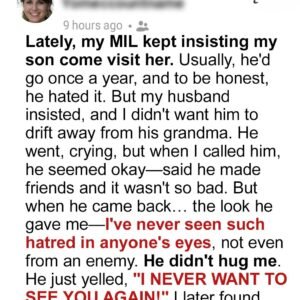For decades, Oprah Winfrey has been more than a television icon—she has been a cultural touchstone, a trusted voice, and a global figure of resilience and generosity. With her influence spanning from daytime television to film, literature, and philanthropy, any whisper of “sad news” about Oprah understandably sparks immediate concern. That is exactly why recent viral posts claiming “heartbreaking” developments about her have spread so quickly across social platforms. But here is the truth: there is no verified, credible report of any such tragedy.
The latest round of misleading claims began circulating in early September 2025. Social media users encountered headlines and thumbnails proclaiming, “Sad News for Oprah Winfrey Fans” or “Breaking: Oprah’s Tragic Announcement.” Most of these posts used incomplete captions designed to bait curiosity, often paired with fabricated photos or memorial-style graphics that suggested illness or death. Yet, when clicked, they directed readers to low-credibility blogs, spam sites, or advertising-heavy pages with no factual reporting.
Fact-checking organizations, including Lead Stories, were quick to investigate and debunk these rumors. They confirmed that Oprah Winfrey remains active, publicly visible, and engaged in her work and cultural life. Just this year, she has appeared at several high-profile events, including charity galas and media features covered by outlets such as People and Page Six. These appearances stand in sharp contrast to the claims circulating online. The reality is simple: the “sad news” headlines are nothing more than recycled death-hoax tactics.
Why do these hoaxes persist? The psychology is straightforward. Content farms and bad-faith actors exploit audience trust, curiosity, and grief to drive clicks and generate advertising revenue. Using emotionally charged phrases like “sad news,” “final moments,” or “last words,” they manipulate readers into engaging with falsehoods. The harm extends beyond wasted attention—it erodes trust in legitimate journalism and spreads unnecessary distress among fans who have admired Oprah for decades.
It is also worth noting that Oprah Winfrey has been targeted by similar hoaxes before. Archives of Snopes and other fact-checking outlets show repeated cycles of fabricated claims dating back several years. Each time, the pattern has been the same: vague headlines, manipulated images, and complete lack of confirmation from reliable newsrooms or official representatives. Despite being disproven, the false stories often continue to resurface, preying on audiences who may not have seen earlier corrections.
The responsible course of action, then, is vigilance. In today’s media landscape, misinformation thrives when emotion overrides verification. A simple rule applies: if a story about a public figure is framed in vague, sensational language but does not appear in established outlets—whether national newspapers, respected broadcasters, or the individual’s own verified accounts—it should be treated with skepticism. In Oprah’s case, credible updates about her health, career, or personal life consistently come through her official channels or through trusted media. Anything else deserves scrutiny.
Beyond the practical matter of verifying news, there is also a deeper ethical point. Wisdom traditions across cultures remind us to guard our words, not passing along every rumor or fearful claim we hear. As the article from Daily Positive suggested, “Words are a trust.” Spreading unverified news—especially stories that imply death or illness—carries real consequences. It can cause grief, alarm, and unnecessary harm, particularly when directed at figures whose lives have touched millions. To honor both truth and compassion, the commitment must always be to accuracy first.
In the broader context, Oprah’s own career offers a counterweight to the noise of misinformation.
Her message has long been about authenticity, resilience, and integrity. Whether interviewing world leaders, highlighting everyday stories of courage, or investing in education and community initiatives, she has embodied the very values that misinformation undermines. That contrast is telling. The viral hoaxes reduce her to a headline for profit, while her actual life’s work reminds us of the dignity that truth-telling can restore.
Fans who come across alarming posts about Oprah would do well to pause before reacting or sharing.
Ask: is this being reported by The New York Times, BBC, People, or Variety? Is there a statement from Oprah’s verified accounts or from her representatives? If the answer is no, then it is likely nothing more than clickbait. Remember: misinformation spreads quickly, but corrections rarely travel as far. Each person who resists the urge to share unverified news helps break that cycle.
The takeaway is clear: there is no “heartbreaking news” about Oprah Winfrey. She remains active and present, with recent public appearances and ongoing projects confirming her vitality. What should truly sadden us is not Oprah’s supposed decline, but the persistence of rumors designed to mislead and exploit. Our responsibility is to choose discernment, to honor the truth, and to refuse to let sensational falsehoods diminish the legacy of a woman who has built her career on honesty, empathy, and empowerment.
In the end, the real story is not about Oprah at all—it is about us. It is about whether we are willing to let misinformation dictate our emotions, or whether we will insist on grounding ourselves in verified fact. To honor Oprah’s example, and to protect our own integrity as readers and sharers, the answer must always be the latter.


